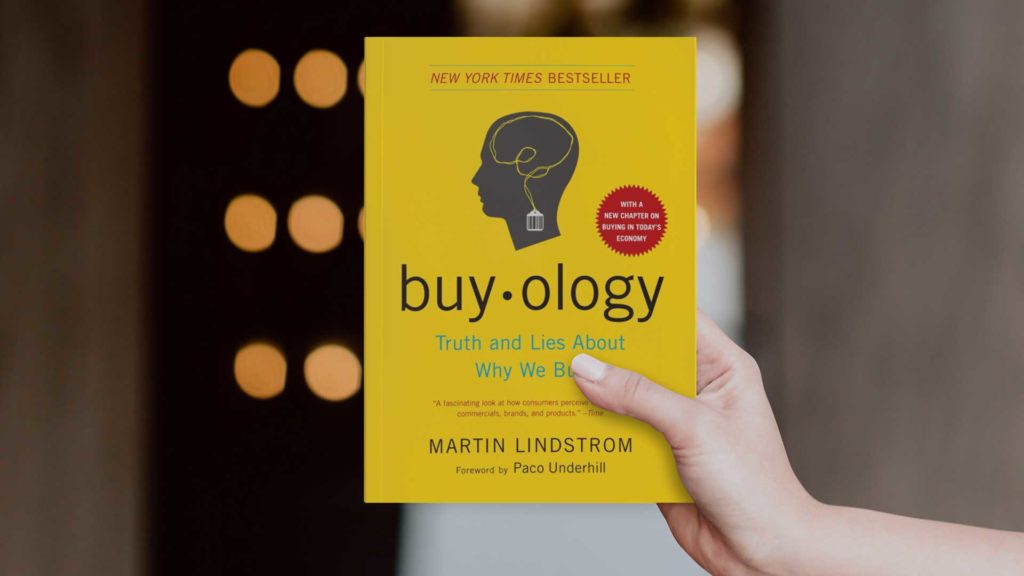If you’re in marketing, you know that copywriting is the reason people buy something. It’s infused in every line of text you read or audio you hear in the thousands of ads you consume every day.
Where can you find proven formulas and years of psychology research and data from marketers? In copywriting books that have been mentioned by copy experts time and time again.
Here’s a round-up of the 5 books every copywriter must read to become an expert at putting pen to paper—and creating conversions.
#1: Ogilvy on Advertising by David Ogilvy
“When I write an advertisement, I don’t want you to tell me that you find it ‘creative.’ I want you to find it so interesting that you buy the product.” ~ David Ogilvy
If you ask David Ogilvy, creativity shouldn’t exist in copy. He never wanted his writers to be creative. Instead, he wanted them to know how to write for the right customer avatar and create a story that moved them from their Before State to the After State. Ogilvy knew this is what sold products and as a marketing agency owner, he became really good at selling stuff.
How to Use This Book: Ogilvy on Advertising is your foundational knowledge on copywriting. It’ll show you what works, why it works, and how you can start practicing these proven formulas today.
#2: Buyology by Martin Lindstrom

“When we brand things, our brains perceive them as more special and valuable than they actually are.”
Martin Lindstrom
Copywriters who bring in millions of dollars a year for their clients have figured marketing out. They know that marketing comes down to the mechanism in someone’s mind that shifts them from thinking, “This product is interesting,” to “Where’s my wallet?”. Buyology is a deep dive into neuromarketing—the science behind why marketing works. As a copywriter, knowing why your words can turn a prospect into a customer takes you from helping clients land a few extra thousand bucks a year to making millions. All from your words.
How to use this book: Buyology is your look into the human mind and why it chooses to buy (and just as importantly, why it chooses not to buy). Your job as a copywriter is to understand these mechanisms so you can pull on specific triggers to promote purchases from the right customers.
#3: Never Split The Difference by Chris Voss with Tahl Raz
“Persuasion is not about how bright or smooth or forceful you are. It’s about the other party convincing themselves that the solution you want is their own idea. So don’t beat them with logic or brute force. Ask them questions that open paths to your goals. It’s not about you.“
Chris Voss
As you dive into copywriting formulas, you’ll notice they talk about the reader 80% of the time and the product 20% of the time. The product doesn’t even come into the conversation until the reader has realized they have a problem and it’s causing a huge agitation in their life. Never Split The Difference, while based on FBI hostage negotiation strategies, shows you the psychology behind why copywriting formulas work best when presented this way. You don’t need to negotiate with bank robbers to use these tactics—they’re still relevant to selling ecommerce and SaaS.
How to use this book: If it can work for hostage negotiators with lives on the line, it can work for you typing copy on your computer in your home office. Never Split The Difference will teach you how the best (of the best!) can get bank robbers to come out with their hands up and how you can use those same communication strategies to show readers why this product is exactly what they are’ve been looking for.
#4: Everybody Writes: Your Go-To Guide to Creating Ridiculously Good Content by Ann Handley

“So, before you begin the writing, be sure you know the purpose or mission or objective of every piece of content that you write. What are you trying to achieve? What information, exactly, are you trying to communicate? And why should your audience care?”
Ann Handley
Content is not created equal. How many times have you driven by a billboard and wondered what they were even advertising? You will never write that billboard if you read Everybody Writes by Ann Handley. Think of this book as the cherry on top that makes your copy go from good to great—and helps you stand out as one of the best copywriters to hire. The better your copy, the more you can charge, and the pickier you can be about which clients you work with. Win-win.
How to use this book: Everybody Writes is the delicious sauce they spread on your sandwich. Without the sauce, your sandwich is okay. With the sauce, you’re coming back tomorrow to buy it again. Ann Handley will show you how to make your content great so you’re more than just another copywriter. You’re the copywriter everyone wants to hire.
#5: Pivot by Jenny Blake
“In basketball, a pivot refers to a player keeping one foot firmly in place whilst moving the other in any direction to explore passing options. Much like a basketball player, successful pivots start by planting your feet, setting a strong foundation, then scanning the court for opportunities, staying rooted whilst exploring options.”
Jenny Blake
The books we covered above teach you the foundations of marketing, the psychology behind buying, the communication tactics to use, and how to be the unicorn of copywriters. Now, it’s time to focus on the other most important part of copywriting: your business. In Pivot, Jenny Blake talks about what to expect from working as a copywriter and how to strategize the trajectory of your career by pivoting. If you’re feeling nervous about leaping into copywriting, this is the read for you.
How to use this book: Grab Pivot if you’re new to the copywriter world or have been trying to find success as a copywriter but falling short. This is your guide to figuring out how to build your business strategically, so you’re always thinking one step ahead. Copywriting is only fun when you know you can still afford to put a roof over your head and Jenny is here to make sure that happens.
What worked in copywriting 100 years ago works today. Even though technology has changed and the way we live our lives isn’t even comparable, the human mind hasn’t. Our brains can’t adapt as quickly as the technology and cultural shifts around us.
This means the tried-and-true copywriting strategies based on psychology research are going to keep working.
Don’t get creative with your copywriting. Instead, learn from the experts and use their expertise to help your clients find their ideal customers.
That’s how you become a great copywriter.
The post The Top 5 Books Every Copywriter Must Read appeared first on DigitalMarketer.






